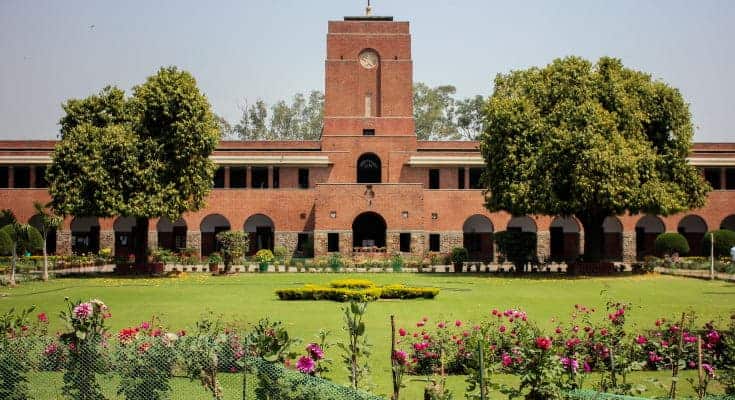Retired DU Professor, Novy Kapadia, who battles a rare Auto Immune Disorder, is one amongst the hundreds who still haven’t received their pensions from the University, after retirement.
Novy Kapadia is a retired professor of English who taught in SGTB Khalsa College, University of Delhi (DU) for more than three decades. He is also a renowned sports commentator and author of a book on Indian Football, Barefoot to Boots. A member of several DU Boards and Committees during his career, he retired from office about two years ago.
Since then, he’s been diagnosed with a rare Auto Immune Disorder that has caused irreversible damage to his nervous system and has crippled him.
The problem? He still hasn’t started receiving his pension.
His critical medical condition owing to Auto Immune Disorder has rendered him partially disabled and confined him to the four walls of his house. He bears the huge cost of treatment alone, without a source of income, solely relying on the help of former colleagues and students.
In conversation with DU Beat, professor Kapadia said, “It has been around two years since I have retired. I served in many committees throughout my 40 year career and was a very active member of the DU teaching fraternity. After I retired, I got diagnosed with this incurable disease. My disease isn’t one that can be cured with a surgery or like a virus which goes away with time. I don’t have any relatives to rely on either, it is only my ex-colleagues and former students who are there. I have a full time attendant, who charges INR 100 an hour. All this while, I haven’t received a single penny of my pension. No money comes in, money is only going out. That is very scary for me.”
However, he is only one, amongst the hundreds who haven’t received their pensions either.
“My file is one amongst the many. This issue has been going on for such a long time and there has not been any conclusive results yet. while my friends and colleagues in these councils and committees have tried to raise the issue, no one from DU has officially said anything regarding the pension,” adds professor Kapadia.
The problem finds its root in a 2014 University Grants Commission (UGC) decision, where the UGC decided to stop the payment of pensions, as the scheme was launched in 1987 without its permission. What followed was a court case that lasted till 2017, where the Delhi High Court finally ordered for pensions to be released for all employees.
Despite the High Court order, as can be seen in Professor Kapadia’s case, there hasn’t been any progress regarding the pensions.
“Delhi University is sitting over a bunch files relating to pensionary benefits of superannuated teachers. Novy Kapadia is one such victims of apathy and indifference of a cruel administration, who has been denied regular pension since he retired almost two years ago. How dare a system treat us like this after superannuation and force us to be left in the lurch?,” says a statement in support of the ex-professor.
Saikat Ghosh, member, Academic Council DU, adds, “In his ailing state, Mr. Kapadia’s troubles have been compounded by the Delhi University’s refusal to fix his pension and help him meet his treatment expenses. Due to no fault on his part, the DU administration has not deemed it urgent to disburse a single penny of his hard-earned pension. Mr. Kapadia’s case is not isolated; in fact it is illustrative of the problems that all retired teachers are facing, especially those whose pensions have been held up by the DU administration on some flimsy pretext or the other, in recent years. Many are ailing and in need of urgent care and assistance. This is a brazen violation of the legally-guaranteed right to pension and full retirement benefits for DU teachers.”
According to Professor Saikat Ghosh, repeated pleas to the current VC, Prof. Yogesh K. Tyagi, have gone unheeded and the union government has also refused to withdraw its ill-advised SLPs against sections of teachers who have been due for pension.
Image Credits: Livemint
Satviki Sanjay
[email protected]










